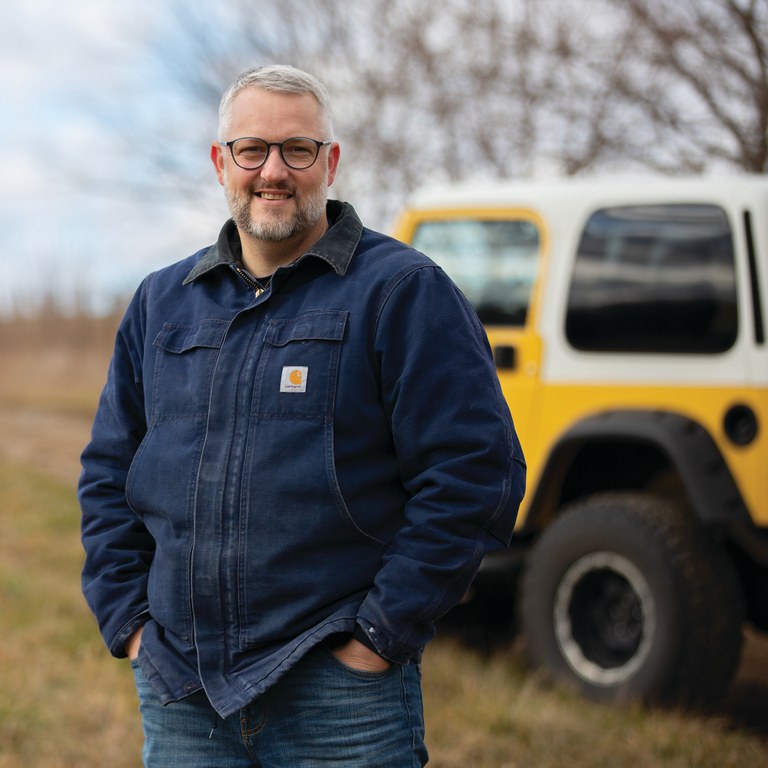Posted: March 2, 2020
The new director of Penn State Extension continues to fulfill his dream of helping communities.
I grew up in a town of 900 people in southern Utah. My dad was a coal miner, and we owned a small farm. I knew I wanted to work with small, economically challenged communities like the one I grew up in.
A first-generation college graduate, I majored in sociology at Brigham Young University. From there I earned a master's degree in sociology at Middle Tennessee State University and a Ph.D. degree in rural sociology at Iowa State University. My career has included stints at Delta State University in Cleveland, Mississippi; the University of Southern Mississippi; and the University of Minnesota. In all of those places, my work has focused on bringing people together to create high-quality education programs to benefit communities.
My role at Penn State is to lead and facilitate extension educators, county-based staff members, and faculty members to apply research to real-world issues in agriculture.
As part of a top-tier research institution, Penn State Extension has a long and impressive legacy of serving the businesses, communities, and citizens of Pennsylvania. In the past few years, the organization has gone through significant changes and modernization that have uniquely positioned it to continue that legacy. We are now viewed as a leader in innovation and advancing digital educational strategies within Cooperative Extension nationally, and we are continuing to supplement our face-to-face programming with online access that prioritizes the needs of our clientele. This allows us to provide more timely information and to dramatically increase our reach and impacts in Pennsylvania.
Every community in the Commonwealth has its own history, culture, and identity, and the people who live there operate within those unique contexts. They have an in-depth knowledge of their resources, and they know what they need to maximize their potential; they are the experts. My plan is to visit every county in the Commonwealth over the next 18 months so I can understand what is important to them. We want to build trust and engagement so that we are continually aware of their needs and can tailor our programming to meet those needs--when they want it, where they want it, and how they want it.
In the urban and metropolitan areas we are not the only game in town. In those cases, we serve as more of an aggregator of resources rather than a direct deliverer of resources. We are skilled at bringing together relevant parties so we can collectively make a bigger impact.
I believe the future is bright for agriculture in Pennsylvania. The state has a diversified ag sector, so it's not completely reliant on row crops, timber, or any other specific crop, but instead has the potential to provide a broad array of products to the large proportion of the U.S. population that comprises the eastern seaboard. Penn State Extension will continue to help farmers grow and nurture those markets. Whether the issue is spotted lanternfly, food safety, or water quality, our college faculty, educators, and staff play a critical role in applying research discoveries and best practices to advance agriculture in Pennsylvania.
I pinch myself every day because I can still hardly believe my good fortune for this opportunity to participate in the valuable work of Penn State Extension.
By Sara LaJeunesse
Features
Fostering Forests
Across the United States, forests face unprecedented threats, and scientists in Penn State's College of Agricultural Sciences are conducting novel and complex research to conserve them.
Buzzing With Purpose
Community scientists work to protect Pennsylvania's wild bees
Conservation Reimagined
Exploring new approaches to cope with a changing climate



